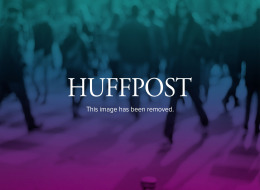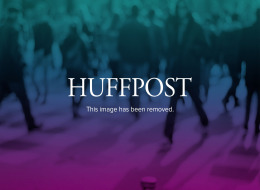Did
you know that one in eight women will be diagnosed with breast cancer in her
lifetime?
This
astonishingly high statistic is one of the many things I learned about breast
health at Planned Parenthood’s Breast
Health Initiative briefing yesterday.
Surrounded by some incredibly influential and inspirational women, including
Planned Parenthood President Cecile Richards and actress/activist Gabrielle
Union, I was informed about the lives that screenings have already saved and the
ways in which Planned Parenthood is expanding their services.
Also
in attendance was the Medical Director of Planned Parenthood in Maryland, Raegan
McDonald-Mosley, and Colleen Luther, a Planned Parenthood patient and breast
cancer survivor.
Dr.
McDonald-Mosley shared with us that the current screening generally entails
breast imaging, which is “usually a mammography for women over 40,” and also
clinical breast examinations by a chain provider, which is a “critical part of
breast cancer screening and is really the only thing recommended for most women
who are under 40 years old.” These clinical breast exams are recommended every
one to three years for women between the ages of 20 and 40, and yearly after the
age of 40. Mammograms are also recommended for women yearly after the age of
40.
Two
factors, including fear and cost, are the biggest barriers preventing women from
following up on their breast abnormalities. To combat these barriers, the
initiative is focusing on providing education and funding to refer women to get
diagnostic tests if an abnormality is found.
 A
breast cancer survivor, Ms. Luther shared with us how she almost ignored the
lump that was found in her breast at age 27, but then realized Planned
Parenthood has a sliding scale, so she decided to get screened. A teary-eyed
Luther said, “There’s no doubt in my mind that Planned Parenthood saved my life,
because I was so close to just walking away from the whole situation.”
A
breast cancer survivor, Ms. Luther shared with us how she almost ignored the
lump that was found in her breast at age 27, but then realized Planned
Parenthood has a sliding scale, so she decided to get screened. A teary-eyed
Luther said, “There’s no doubt in my mind that Planned Parenthood saved my life,
because I was so close to just walking away from the whole situation.”
Union
spoke about her connection with breast cancer, explaining how her good friend
Kristen Martinez died of Stage 4 metastatic breast cancer after she had
procrastinated on getting screened because she was scared of what might be
found. Goosebumps formed along my arms after Union shared the request that
Martinez had asked of her a week before she died, saying, “You have to combat
this, and you have to let people know that fear of the unknown can literally
kill you, because it killed me.” Union now spreads the word about breast health
in as many media outlets as possible, including her Twitter page, on the radio, and on TV.
Wrapping
up the discussion, Richards said, “The gap between getting care and not getting
care can be so thin, and I think whether it’s cost, or a lot of things besides
ourselves to focus on, or whether it’s that basic fear that keeps women from
getting [care], that’s the gap we’ve got to close.”
To
do your part, visit Planned
Parenthood’s website to learn more, and make sure to get yourself screened,
whether you are 20 or 50. Your life could be saved, and Planned Parenthood’s new
Breast Health Initiative is here to help.
Contact
the author of this post at Daley@TheFrisky.com.
[Photo: Thinkstock]











0 comments:
Post a Comment